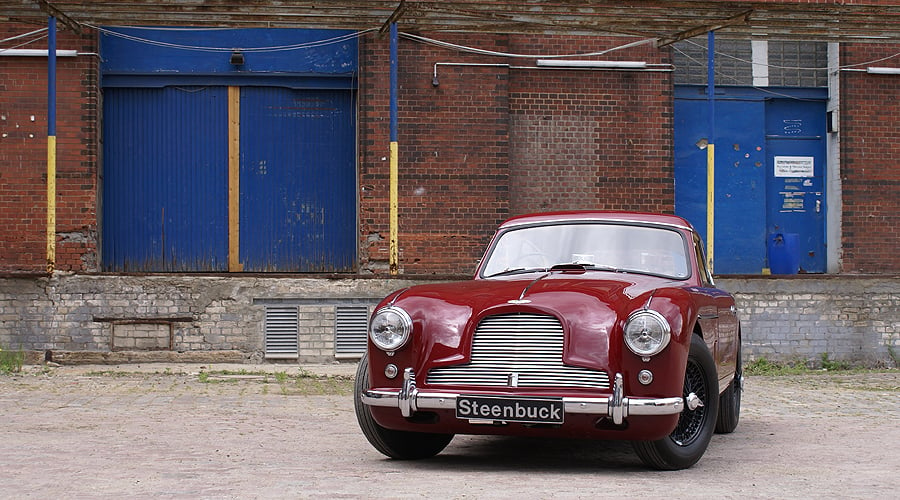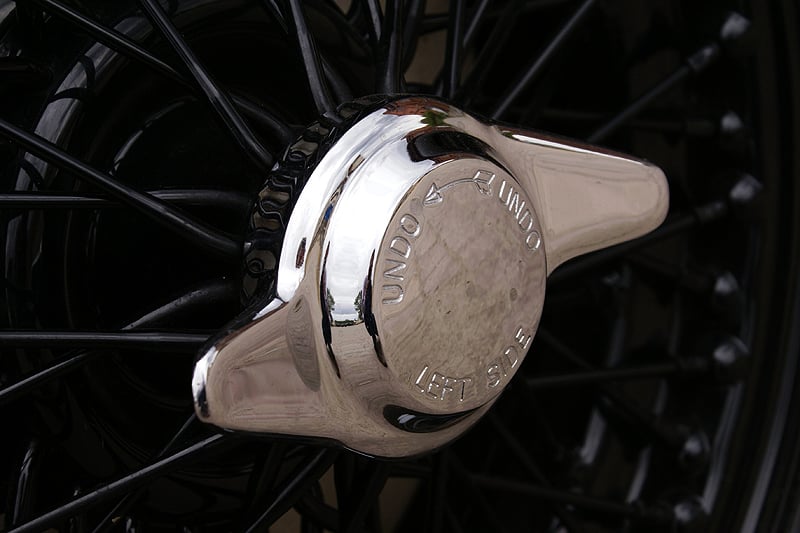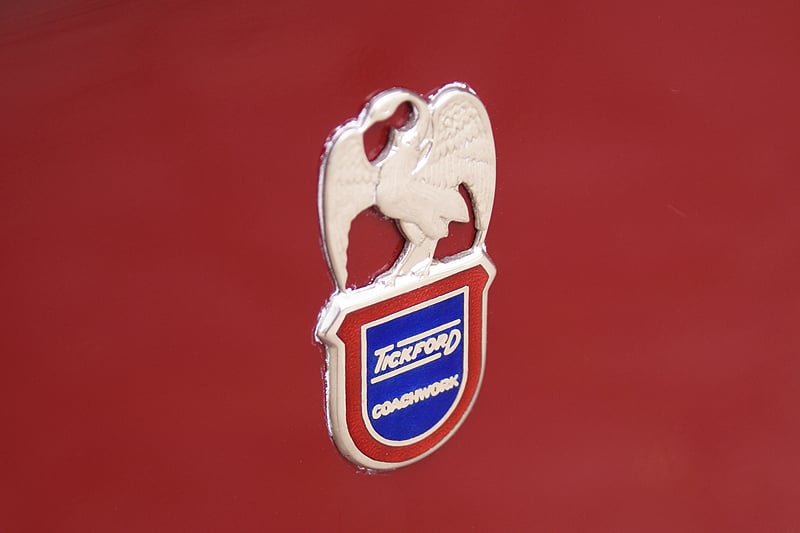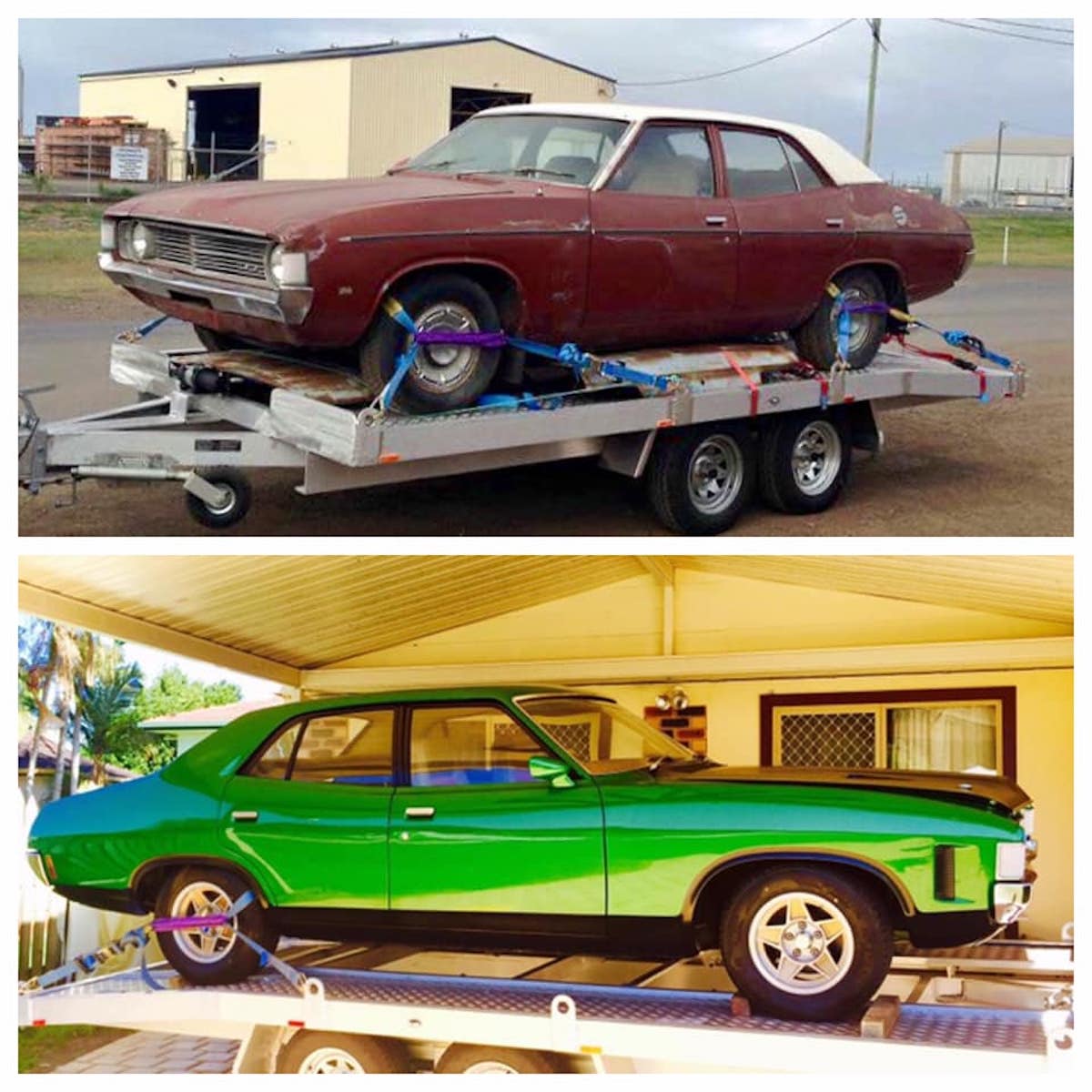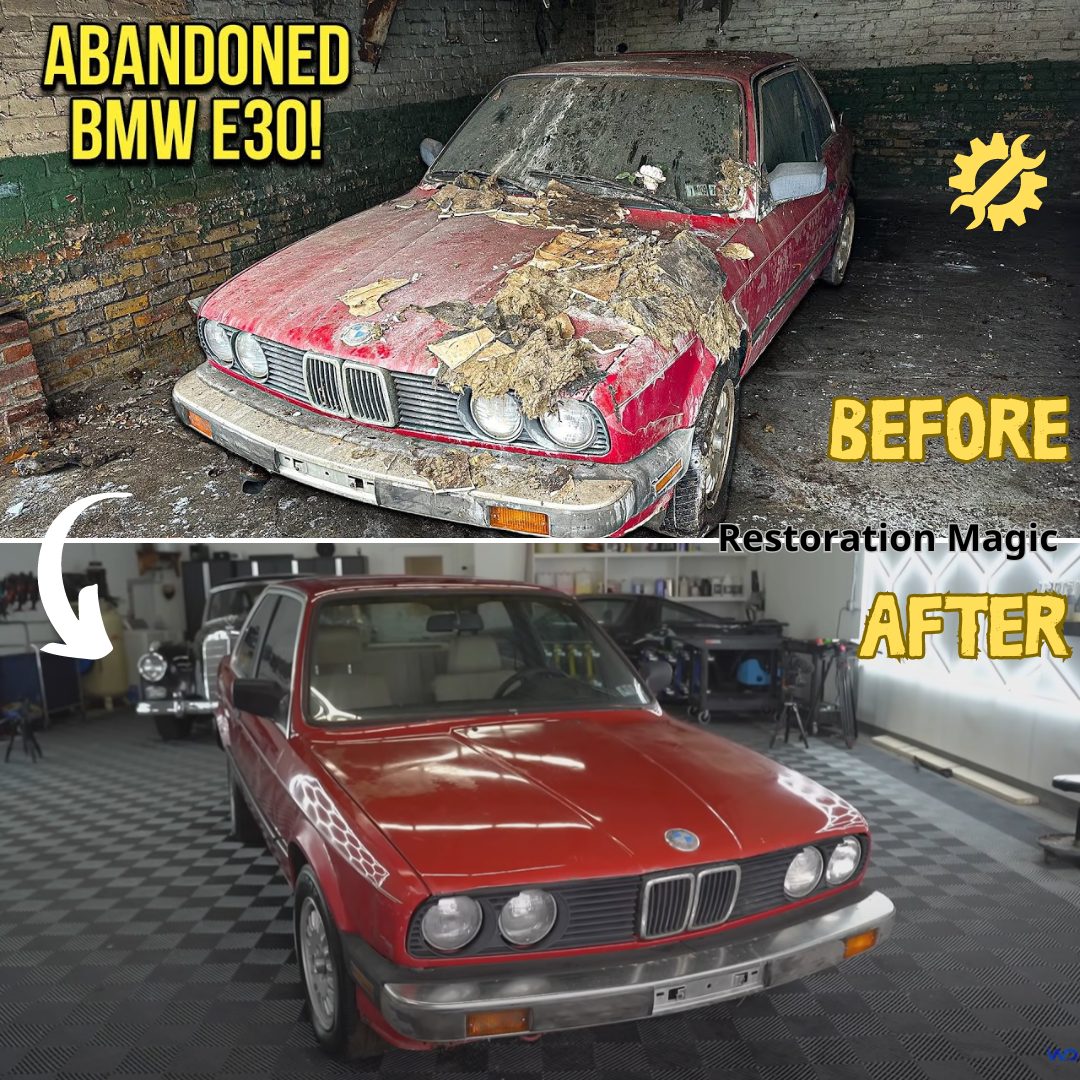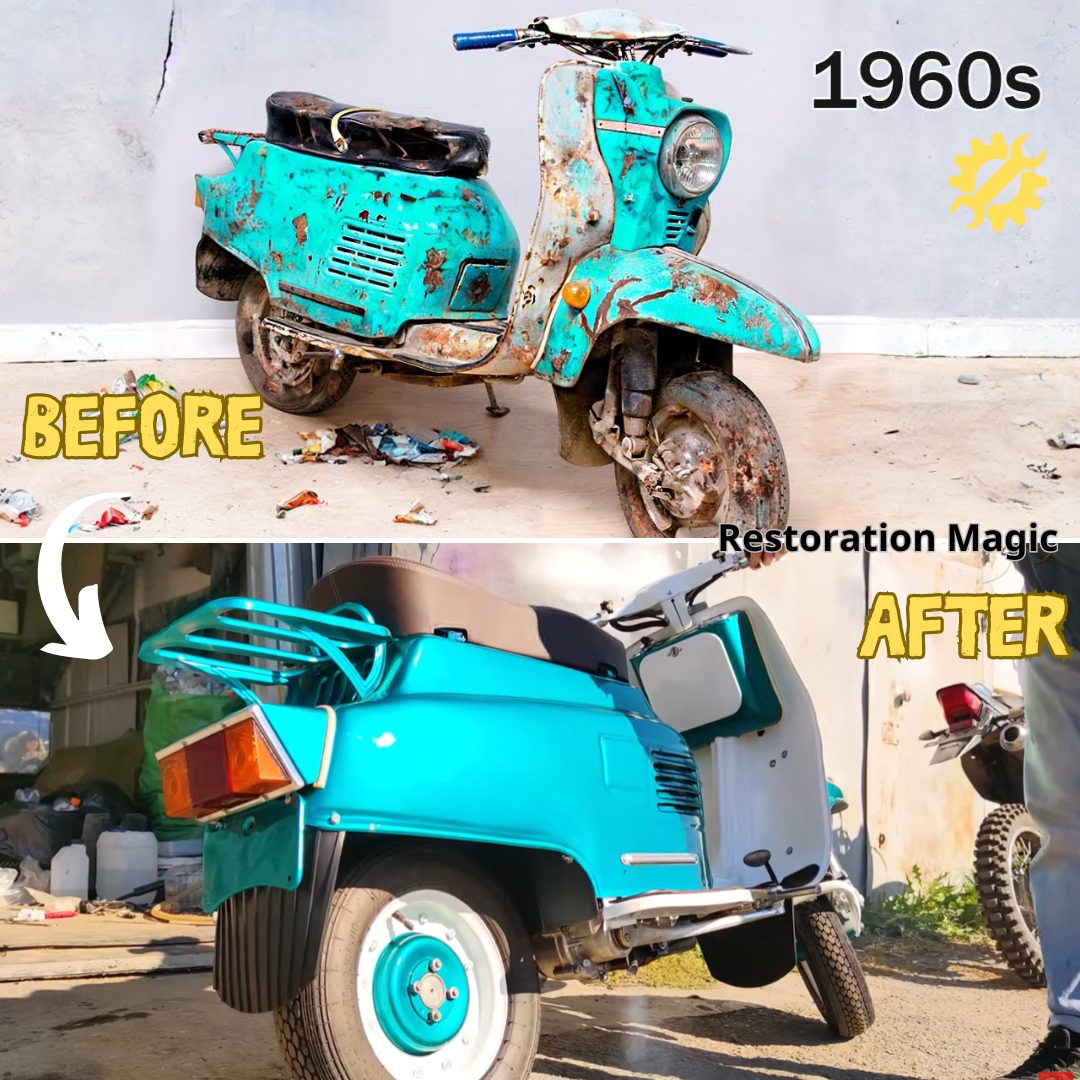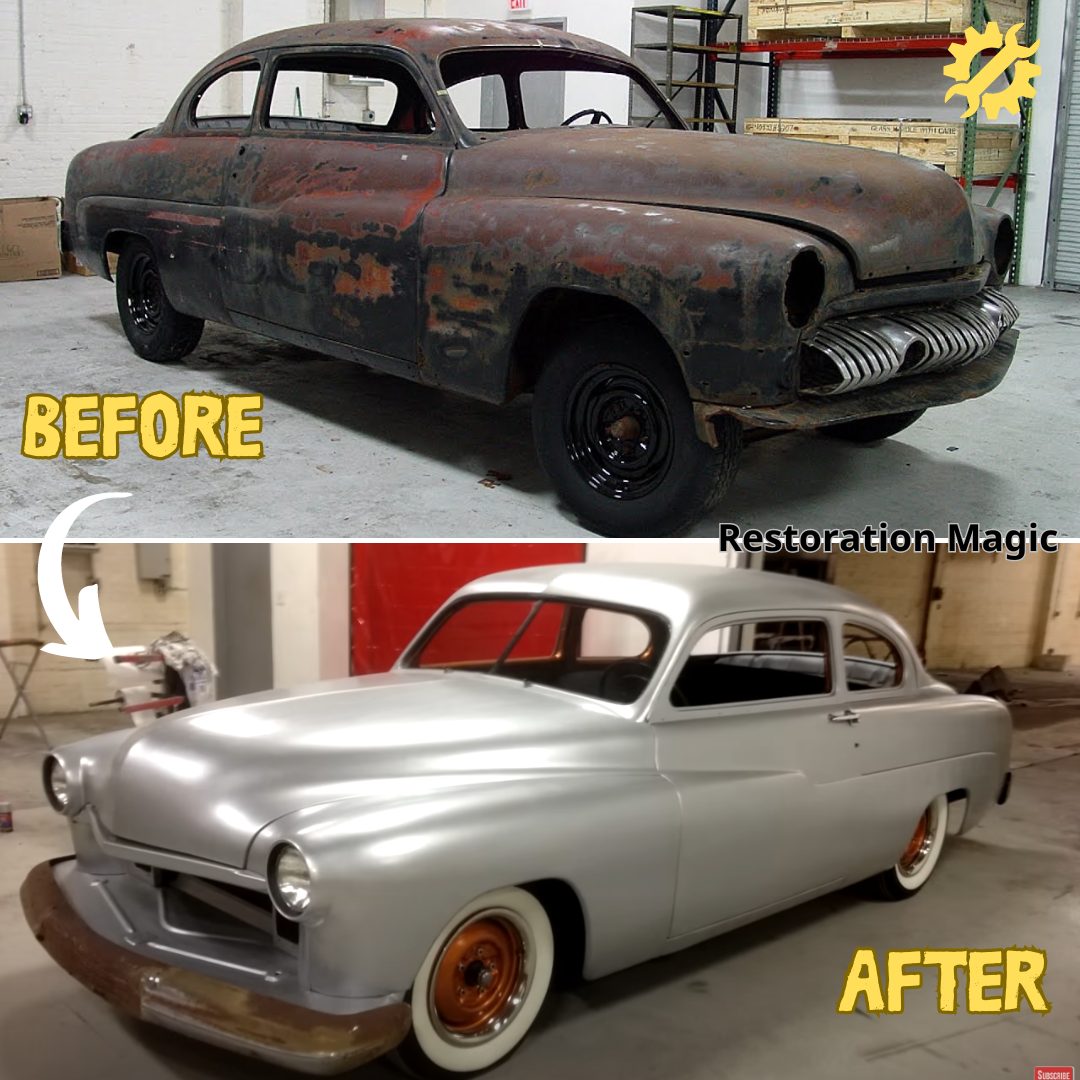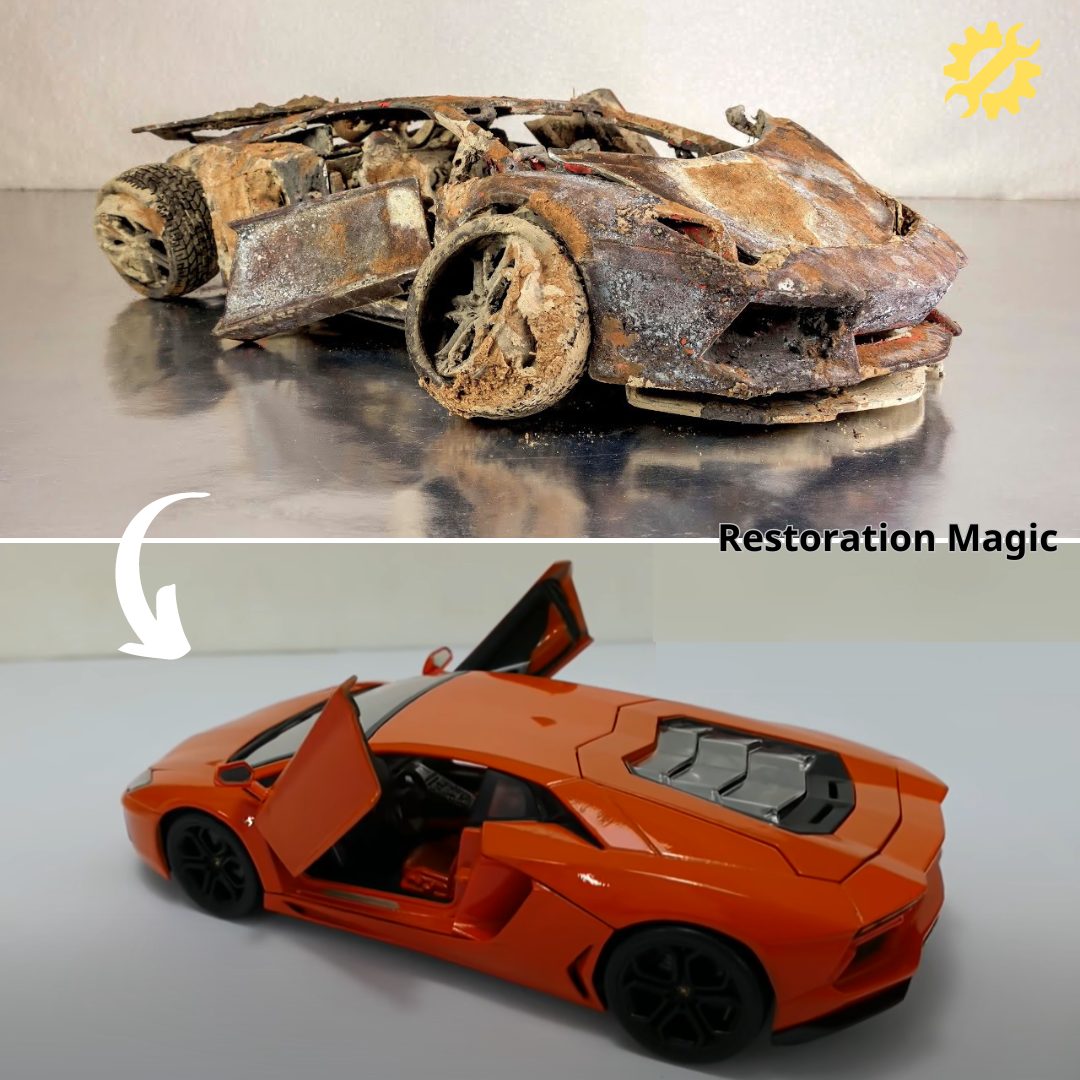With its practical 2+2 seating, hatchback boot and 2,922cc straight-six, the third version of Aston’s DB2 is the perfect grand tourer. But where to go? Classic Driver drove a Mk II from Steenbuck Automobiles in Luneberg to the latest Meilenwerk exhibition space in Hamburg.
The DB2 was the first ‘proper’ post-War Aston Martin produced under David Brown’s ownership and was to be – until the DB4 was launched towards the end of the decade – the company’s main model line for the 1950s.
The ‘DB2/4’ was the first variation on the classic British car’s bodywork, introducing the innovative hatchback design in 1953 and then, at the London Motor Show in October 1955, another, ‘Mk II’, version was shown to the public. This had, among other small styling changes, a taller roof (by 3/4in) and more pronounced tailfins. Inside, more comfortable seats and a traditional ‘fly-off’ handbrake enhanced the quality, ‘Gentleman’s Club’ interior.
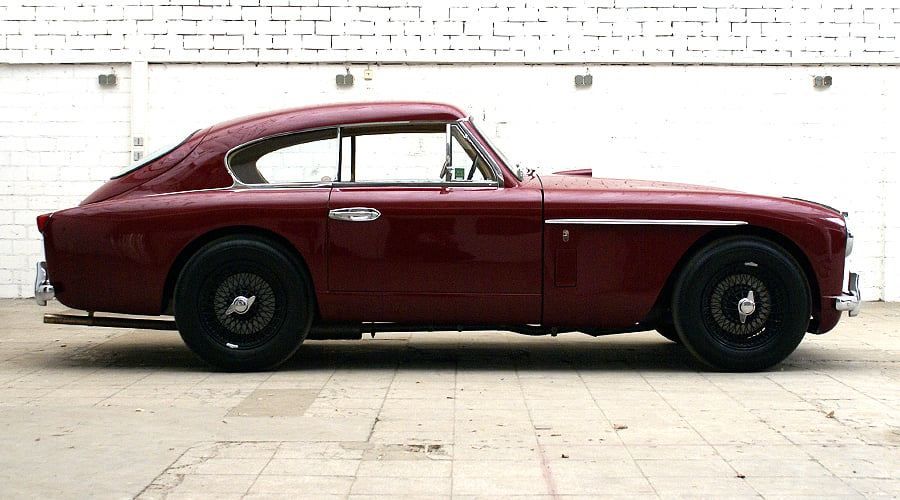
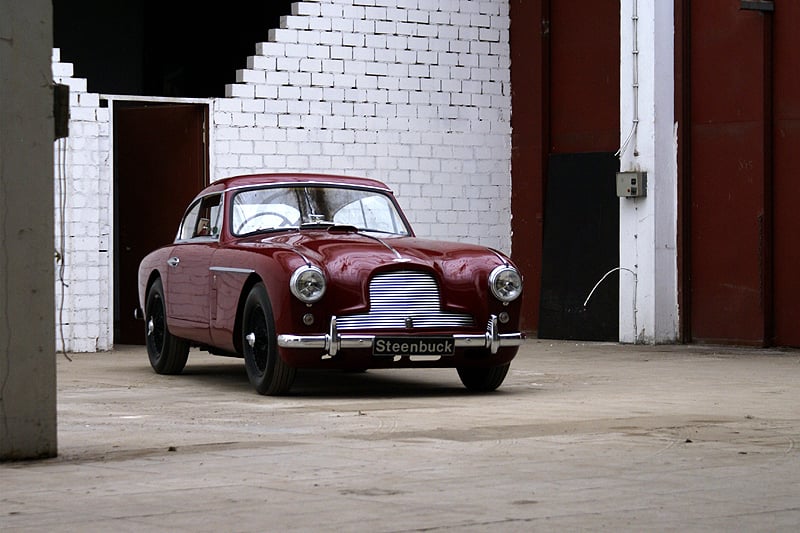
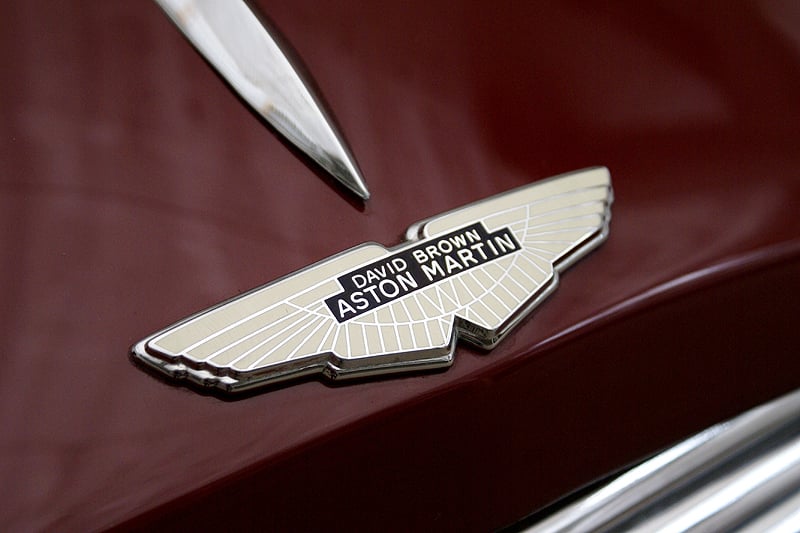
A quick giveaway of the Aston Martin DB2/4 Mk II (the first Aston to be bodied in Newport Pagnell) is its chrome strip above the windscreen, masking the increase in height. Some 200 saloons, dropheads and attractive fixed-head coupés were built until the DB2/4 Mk II was replaced by the final version of the DB2, simply known as a ‘DB Mark III’.
If all that confuses you, well, let’s get behind the wheel of the fine, dark red 1956 DB2/4 Mk II currently for sale at Steenbuck Automobiles.
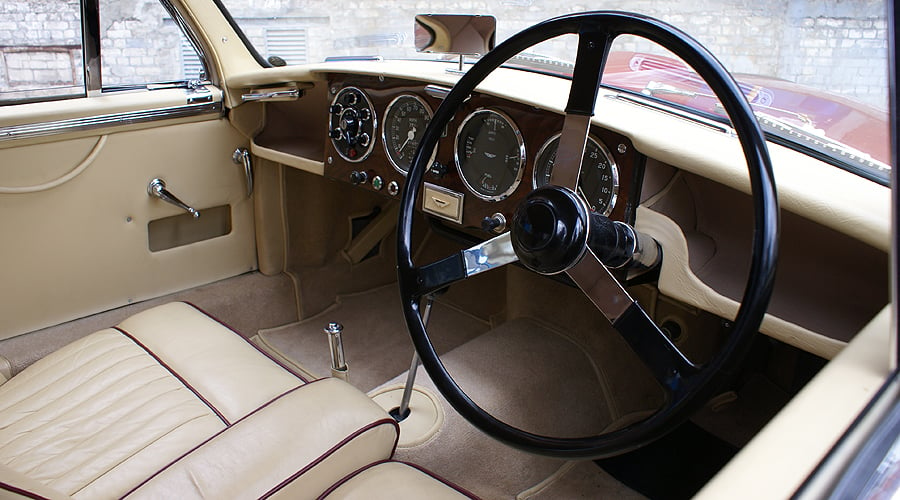
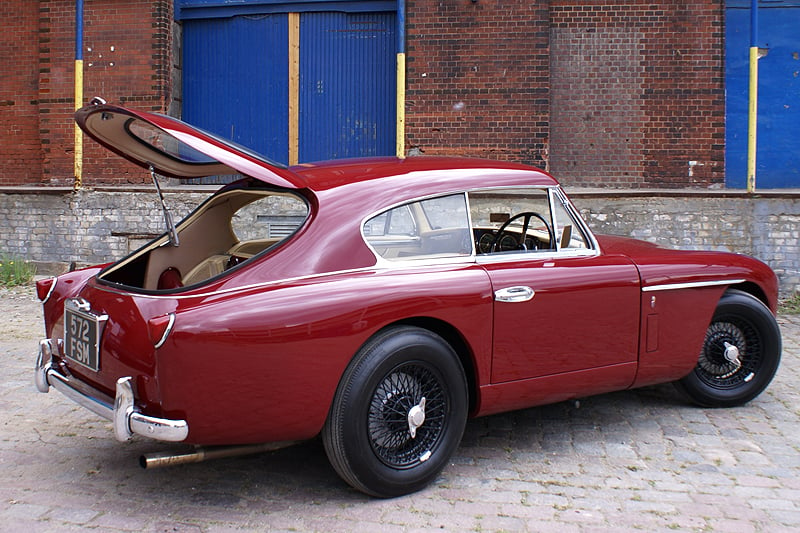
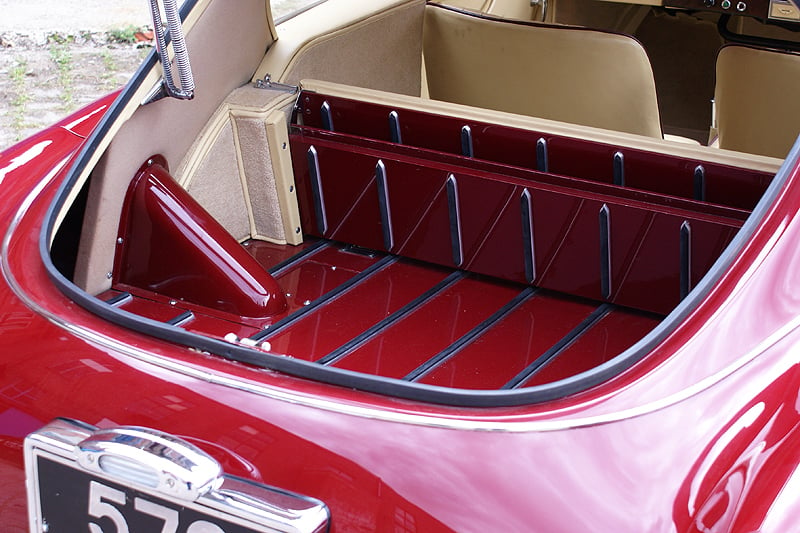
The short journey from Luneberg to Hamburg is enough to reveal the thoroughbred character of the type of car extensively rallied and raced in period. On the open road, the steering lightens up and the airy cabin resonates with the rasp of the classic British six-cylinder.
From the DB2/4 until the DBSV8, the David Brown Aston Martins were a byword for relative practicality and the ability to transport two adults (four, at a pinch, in the DB6) with a fair amount of touring luggage over long distances. The small rear seats and the hatchback tailgate of the DB2/4 allow overnight bags, hats, coats and all the other paraphernalia associated with driving in the 50s to be carried with ease.
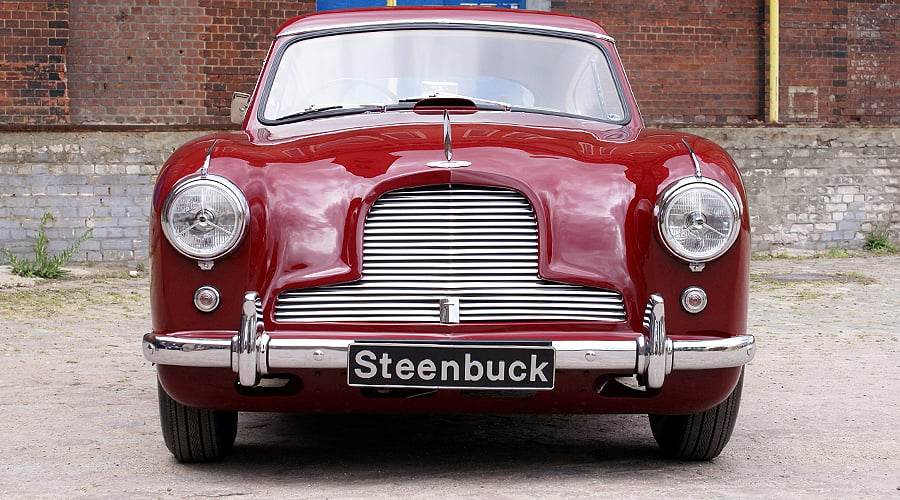

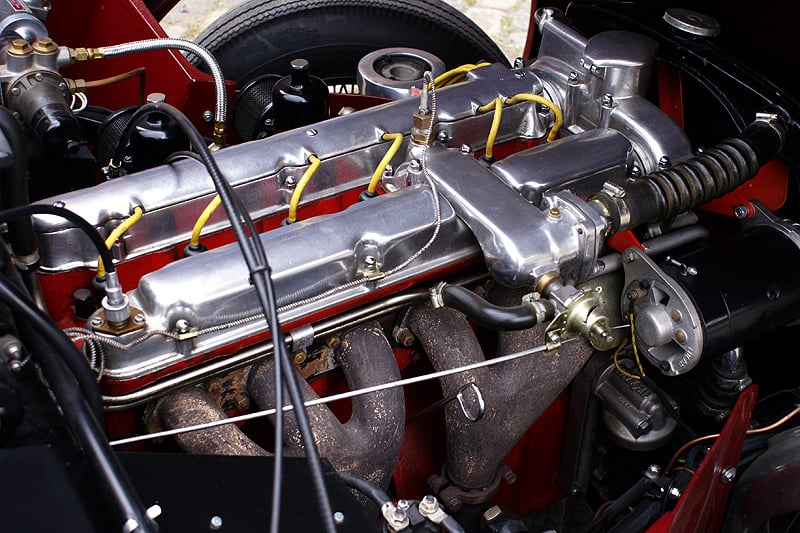
The 140bhp engine, once in its stride, provides an easy touring pace and we’re soon arriving at the Meilenwerk for some photography. The Hamburg location is still under development, but when completed will join Zurich and Berlin as another interesting, redeveloped old industrial building that showcases classic cars for sale and restoration companies. It will also be a focal point for clubs and classic car enthusiasts to meet.
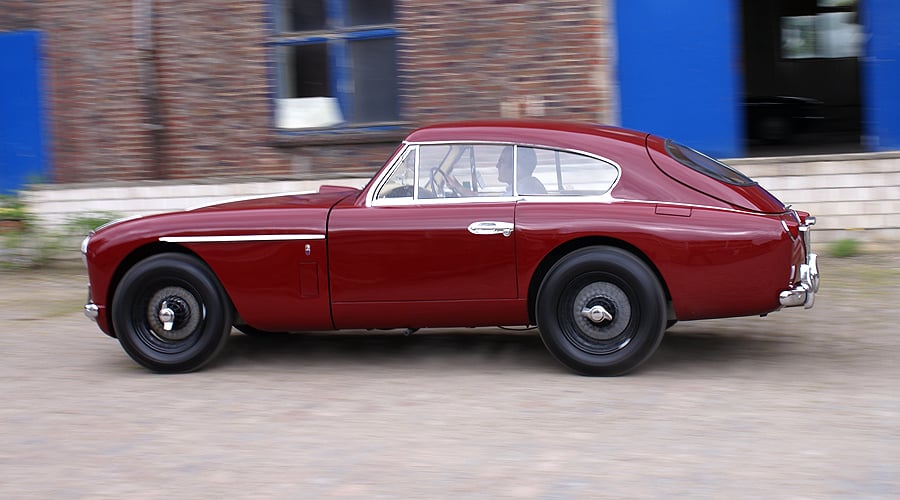
Just the place to take a car such as this 1956 Aston Martin DB2/4 Mk II, further details of which can be found in the Classic Driver Market.
